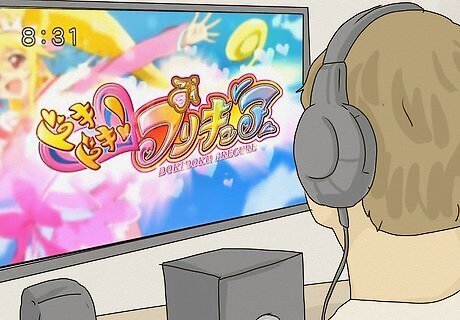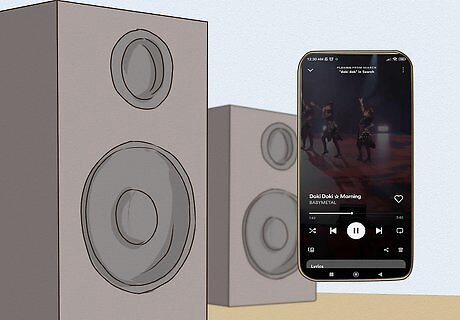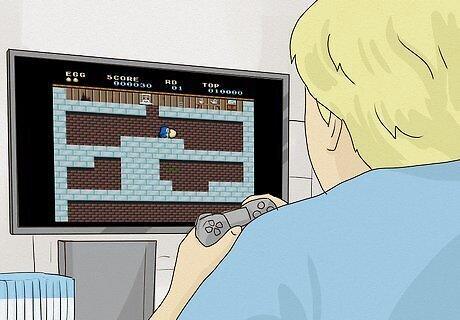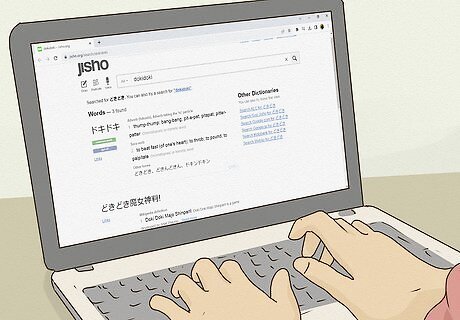
views
- The meaning of “doki doki” is how your heart beats when you're nervous, excited, or anticipating something.
- Doki doki is used in several popular media franchises, like the anime/manga Doki Doki School Days and the visual novel Doki Doki Literature Club.
- “Waku waku” is another common Japanese onomatopoeic word that represents the sound of an excitedly beating heart.
What does doki doki mean?

Doki doki symbolizes the sound of a beating or throbbing heart. In Japanese, doki doki (ドキドキ) is an onomatopoeic term, or a word that represents a specific sound effect. Think of it as a word that describes that heart-pound feeling of excitement, nervousness, anticipation, or fear during a major event, like seeing your crush walking down the street or getting front-row seats to see your favorite pop star.
How to Use Doki Doki

Use doki doki to express a feeling of excitement or nervousness. While this word definitely sounds more natural when used in a purely Japanese context, it can be sprinkled into English sentences as an adverb (a word that describes/modifies a verb, adjective, or other adverb). “My heart went doki doki when I saw a text from them on my phone.” “I could feel my heart going doki doki before I opened the door.”
Doki Doki in Popular Media

Anime/manga “Doki doki” is used in the title of a few family-family anime and manga series, including: DokiDoki! PreCure: An anime from the popular magical girl franchise Pretty Cure. Doki Doki School Hours: A slice of life/comedy manga and anime series that focuses on a teacher and her unique students. Doki Doki Wildcat Engine: A short movie from the Doraemon franchise that was played before the movie Doraemon and the Empire of the Sun, along with another short film Doraemon: A Grandmother’s Recollections.

Music The word doki doki is in a couple of Japanese song titles, including “Doki Doki Morning,” a track by the popular kawaii metal band Babymetal. It’s also the title of a 1995 track by Japanese rock band Judy and Mary.

Video games Several video games feature the word doki doki in their title, including the notorious 2017 visual novel, Doki Doki Literature Club. Despite its seemingly innocuous name and cast of characters, this free-to-play game features deeply disturbing themes and graphic sequences designed to take the player by surprise. Other games that feature the word doki doki include Doki Doki Majo Shinpan!, Doki-Doki Universe, Doki Doki Penguin Land, and Doki Doki Panic.
Doki Doki Spelling

Katakana is traditionally used to spell doki doki in Japanese. The phonetic symbols/letters “do” (ド) and “ki” (キ) make up the word, repeated two times in total. Katakana is one of 3 writing systems primarily used in Japanese, along with hiragana (a set of phonetic symbols) and kanji (a large lexicon of Chinese characters). While a mix of hiragana and kanji is used for the majority of Japanese writing, katakana is often used to spell out loan words from other languages (e.g., a non-Japanese name like “Amanda”), as well as onomatopeic words like doki doki. Katakana and hiragana are both made up of the same phonetic symbols; however, the letters of each alphabet are written in slightly different ways. For example, the traditional Japanese greeting “konnichiwa” would be traditionally spelled as “こんにちは” using hiragana, but would appear as “コンニチワ” when spelled with katakana.
Similar Japanese Onomotapeia

Waku waku (わくわく) “Waku waku” essentially carries the same meaning as “doki doki”—it’s an onomatopoeic word used to describe a heart that’s racing due to excitement. For example, in the popular manga and anime Spy Family, the young protagonist Anya often says “waku waku” to express how excited she is. “Waku waku” has a purely happy/excited/thrilled connotation, while “doki doki” is often associated with feelings like nervousness and fear.




















Comments
0 comment